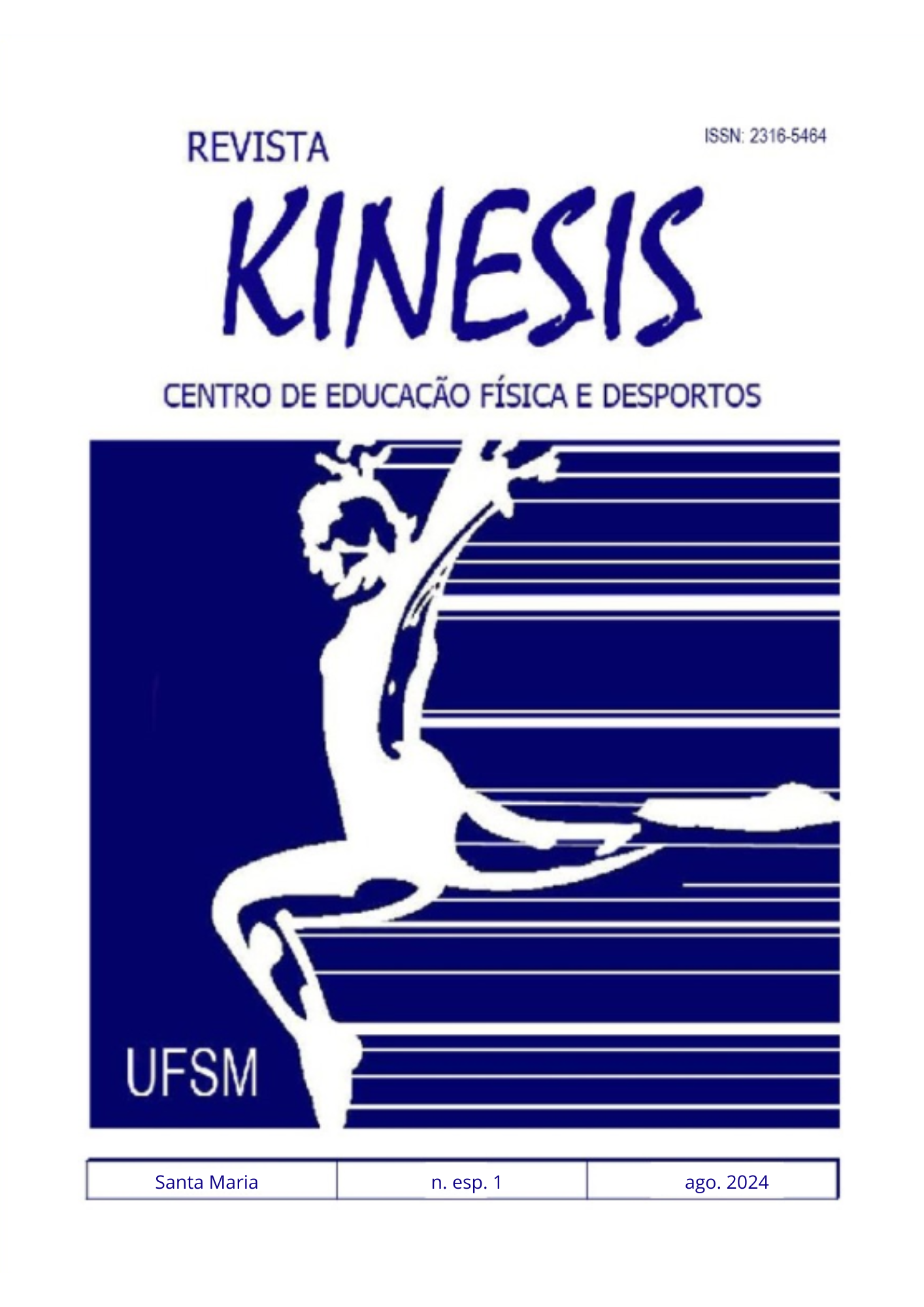Temporal culture in school physical education: two pedagogical models
DOI:
https://doi.org/10.5902/2316546484680Keywords:
School physical education, School physical education; Educational project; Temporal culture., Temporal cultureAbstract
This article aims to show the relation between the educational project and the use of time in the motor situations practiced in physical education, as well as to reveal the similitudes and differences that manifest in public and private administrations. The method adopted was the ethnographic with case studies from both a public school and private school in Burgos, Spain. The PE classes of a group of sixth graders in each of the schools during the 2009 – 2010 school year were observed. The internal and external logic of the 510 motor situations were described and analyzed: 242 carried out in the public center and 268 practiced in the private center. The results show that motor situations with memory predominate in both centers, although the presence of those without memory is very significant in the private one. Regarding the external logic, it was observed that the results of part of the motor situations with memory are recorded, a fact verified mainly in the public center. Therefore, the temporal culture of the schools follows the temporal principles distinctive of a post-industrial society, while presenting significant differences, reflecting their educational projects.
Keywords: School physical education; Educational project; Temporal culture.
Downloads
References
ESPAÑA. Ministerio de Educación y Ciencia. Real Decreto 1513/2006, de 7 de diciembre, por el que se establecen las enseñanzas mínimas de la Educación Primaria. Boletín Oficial del Estado (B.O.E, Nº 293, de 8 de diciembre de 2006).
ETXEBESTE, J., DEL BARRIO, S., URDANGARIN, C., USABIAGA, O. & OIARBIDE, A. Ganar, perder o no competir: La construcción temporal de las emociones en los juegos deportivos. Educatio Siglo XXI, 32(2), pp. 33-48, 2014.
GIMENO SACRISTÁN, J. El valor del tiempo en educación. Madrid: Morata, 2008.
LEE, D. Codifications of reality: Lineal and nonlineal. En Freedom and Culture, pp. 105-121. New Jersey: Spectrum Book Prentice-Hall, Inc, 1959.
LÓPEZ DE SOSOAGA, A. Discurso y praxis de la Educación Física en el País Vasco en el contexto de la Escuela Primaria. Tesis (Doctorado en Las Actividades Físicas y el Deporte). Universidad del País Vasco (UPV/EHU). Vitoria-Gasteiz, España, 2017.
PARLEBAS, P. Santé et bien-être relationnel dans les jeux traditionnels. En Villa Porras, C. (ed.), Jeux traditionnels et santé sociale, pp. 95-101. Aranda de Duero: Asociación Cultural la Tanguilla, 2010.
PARLEBAS, P. Jeux traditionnels et dynamique relationnelle. En L. Collard (ed.), Sport et bien-être relationnel. Facteur d'intégration, de socialisation, d'insertion des jeunes, pp. 41-86. París: Chiron, 2012.
URDANGARIN, C. & ETXEBESTE, J. (2005) Euskal jokoa eta jolasa: transmitiendo una herencia vasca a partir del juego. Vitoria-Gasteiz: Gobierno Vasco, 2005.
Downloads
Published
How to Cite
Issue
Section
License
Copyright (c) 2024 Flávia Carneiro Franco

This work is licensed under a Creative Commons Attribution-NonCommercial-ShareAlike 4.0 International License.
The works must be submitted in the digital format of the SEER platform, via the electronic address: http://periodicos.ufsm.br/kinesis/index. In case of any doubts, contact the editorial team through the email kinesisrevista@ufsm.br. The authorship that publishes in the Kinesis journal agrees to the following terms:
- They retain copyright and grant the journal the right of first publication.
- They allow and are encouraged to publish and disseminate their work online (e.g., in institutional repositories or on their personal page) as this can cause positive alterations, as well as increase the impact and quotation of the published work.







